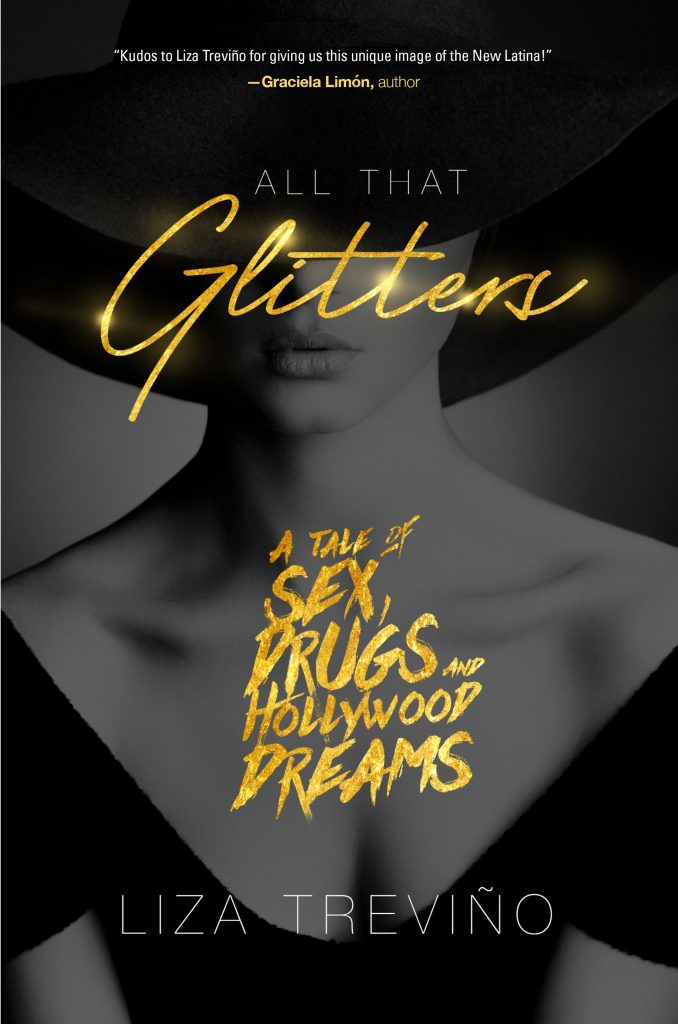 Koehler Books , 2017
Koehler Books , 2017
REVIEWED BY JONATHAN MARCANTONI
–
Alex is a survivor. This is both a simple statement about the main character of Liza Treviño’s debut novel, All that Glitters (Koehler Books), and a starting point for one of the most unexpected literary powerhouses to come out this year. Ms. Treviño does not just show us that Alex is a survivor, she also asks what circumstances lead her to being one? What does being a survivor mean to her? How does being a survivor help her, but more importantly, how does it hinder her? How does a person navigate through life when their biggest strength and biggest weakness are the same thing?
Asking such questions is what separates this book, a chronicle of a young South Texas woman seeking fame and fortune in Hollywood, from so-called “chick lit” and “beach reads” and makes it a literary tour-de-force. The structure of the story could have been a soap opera, as we meet Alex on the night that she becomes the first female and Latina to win both the Academy Awards for Best Director and Best Original Screenplay. The story is set in the 90s, which seems absurd at first, but later proves to be an asset. We see Alex in a limo with a man named Nick, who complements her night of glory by going down on her, a juxtaposition that appears to start the story within a feminine fantasy. Yet, Alex is miserable, anxious, and seemingly quite uncomfortable with this man who appears to be at her beck and call. There are some telling hints that this façade is not all that it seems, and without giving away too much, as the story backtracks to lead us back to this moment, we begin to see this scene in a new light, not as a moment of feminist triumph, but rather of a culmination of sexist power games and self-degradation, in which Alex is on the losing end.
The eighties/nineties time frame may seem like a strange place to set the novel, since racial progress in Hollywood was not a major issue at that time as it would be in the #OscarsSoWhite age, but the time period ends up illuminating a fascinating aspect about modern technology. Today, every offhand thing a person says online is kept in storage for use against them at a later time. How many times have scandals erupted over twenty year old quotes, after all? The fact is, Alex is a celebrity whose manner and behavior would be very hard to conceal in the Twitter/Facebook age. She has a personality that would incite a large number of trolls, although, given her personality, she would likely eat such people alive, she would nonetheless be a gossip magnet. While celebrity gossip has existed even before Hollywood (for some interesting research, look up 19th century gossip on theater actors; it is rather illuminating), the hyper-aware nature of social media would likely consume a person such as Alex, who is unapologetic about how she navigates the sexism of the Hollywood system. Aside from that, many of the relationships in the book hinge on the ability or inability to communicate. Treviño reminds those of us who lived during that time period just how difficult it could be to get a hold of a person, and how we take the instant gratification of our modern technology for granted. Yet this disconnect serves the story astonishingly well, adding tension to moments that nowadays would be resolved almost instantaneously, or adding to the loneliness of a particular character.
While Treviño places Alex and her friend Elly in many situations we have seen before—such as model parties turned sex parties, or directors taking advantage of female staff—her focus is always on further developing Alex’s personality. Alex is a character who, if she were a man, would be applauded for her ambition and confidence, but as a woman, is demonized. Treviño makes the smart decision to show that ambition itself is not Alex’s problem, but rather her need to survive at all costs is. She is a person who may need ambition and drive, but she also needs moral certitude and boundaries. One cannot maintain dignity if they are willing to compromise their deepest selves at a moment’s notice. The battle Alex wages is with herself—how can you be a powerful woman while maintaining your sovereignty and integrity? This is the question that haunts women of all professions. While Alex encounters and becomes the slave to misogynistic, hateful men, they are not as much the problem as her doubt in herself. That internal struggle is one that is too rarely explored, and Treviño pulls no punches in examining the dark side of femininity. Do not let the cover and promotional material for this book fool you, All that Glitters is a serious, complex, and stirring examination of the female soul that is uncompromising and unapologetic, much like its magnetic protagonist.
![[PANK]](http://pankmagazine.com/wp-content/themes/pank/assets/images/pank-logo-large.png)
